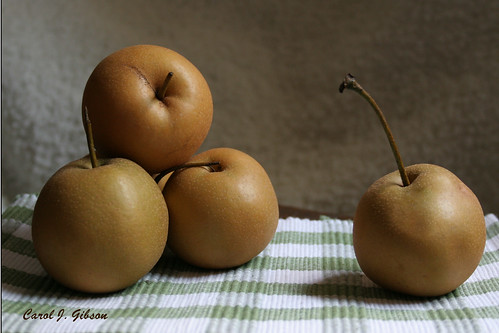I have to admit up front, this is going to be the crappiest record I've ever written.
You see, as I was walking my dogs Marty and Rosie the other day, it occurred to me that poop plays a huge role in my life. I'm not afraid to admit it. I pick up after my dogs every day, I scoop my cat's litter box every day (Ok, not Every day, but it as a matter of fact feels that way), and I talk with my clients about their bowel movements. In fact, while I was in India this past summer, poop was as a matter of fact the amount one topic of conversation in the middle of my colleagues and me, as we compared notes on who had diarrhea and who was still healthy. I even remained on "poop watch," for any weeks after my return to the States, manufacture sure that everything was Ok (and thankfully, it was!)
So, if you are a pet owner, parent, health care professional, or world traveler, you probably know what I mean!
But many people don't get to talk about poop as much as I do. I know this because when I ask people about their poop, I often get blank stares and uncomfortable looks. So, I let's talk about all of the questions that people want answered but are commonly afraid to ask. After all, your poop is an prominent indicator of your farranging health!
What is Poop?
Have you ever wondered what poop as a matter of fact is? About 75% of your average poop is water, although this will vary depending on the person. Water is absorbed out of fecal material as it passes through the large intestine, so the longer you take to "go," the drier your poop will be.
The remaining 25% is comprised of dead bacteria that helped us suck in our food, living bacteria, protein, undigested food residue (also known as fiber), waste material from food, cellular linings, fats, cholesterol, salts, protein, and substances released from the liver and the intestines (such as mucus).
What Makes a salutary Poop?
Your feces are a clear indicator of the health of your gastrointestinal tract. Dr. Mehmet Oz says, "At the end of the day you can analyze your body as a matter of fact effectively by seeing at what comes out of your body."
So what should you look for? A salutary poop will be:
Golden brown, which is due to pigments formed by the bacteria in the gut and bile from the liver. You want to make sure the color is general because that tells you a lot about what's going on in your gastrointestinal tract (more on color below).
Formed into one long shape. Dr. Michael Levitt, an Australian colorectal surgeon who has written a book called The Bowel Book, says that the salutary human stool resembles the shape and consistency (although not the same color) of an unripe banana. Dr. Oz says " You don't want [pieces]." Some experts disagree, saying they don't have to be well- formed. Patrick Donovan, N.D., a naturopath in Seattle, Wa says "Stools don't have to be well- formed logs. They can disperse in the toilet water; they can break down."
Nearly odorless.
About 1 to 2 inches in diameter and 18 inches long.
What About Other Colors?
Sometimes we don't see that "golden guru," and are faced with something else instead. Here's some insight into what those other colors might mean.
Black: Feces can be black if dried blood is present in it from internal bleeding in the upper digestive tract. See a doctor if this is the case.
Very Dark Brown: Drinking wine the night before may succeed in dark brown poop. This could also be the succeed of eating too much salt, or not sufficient vegetables.
Yellow: One health that can cause yellow poop is an infection known as giardia, a perilous infection that can spread to others. Other cause of yellow poop may be a health known as Gilbert's syndrome. See your doctor if you are consistently seeing yellow poop.
Green: Babies often have green poop when they are given food for the first time. Children may have green or blue poop from inevitable illnesses or from ingesting food colorings. Adults may also have green poop if they eat large amounts of green, leafy vegetables or if they eat large amounts of foods with green food coloring. Light green poop may indicate inordinate sugar in the diet. Green feces can also occur with diarrhea if bile salts pass through the intestine unchanged. Again, see a doctor if you are concerned!
White/pale: Feces can appear white or pale after drinking barium sulfate, which is often given to patients getting an X-ray of the digestive tract. A white or pale stool may also be an indication of problems with the gallbladder or liver.
Red: tantalizing red in the feces may be indicative of active bleeding, possibly the succeed of hemorrhoids. A magenta color may succeed form eating intense red food coloring, or red foods such as beets.
How Often Should I Poop?
Ah - the big question! Experts disagree on how often a man should poop. The National compose for Diabetes, Kidney, and Digestive Diseases says three times a week is general and salutary for some people. According to Ayurveda, an aged Indian medical system, once a day is ideal. Other experts advocate once or twice a day, while still others say a man should have a bowel movement within two to three hours of a major meal- -or two to three times a day. So you can see that it as a matter of fact depends on who you talk to. My personal notion is that you above all want to be regular in your pooping schedule, and that one poop a day is ideal.
When man poops four times a day or more and the poop has a liquid consistency, this is referred to as diarrhea. When man poops less than two or three days a week and the poop is hard, dry, and difficult to pass, this is known as constipation.
What's the Deal with Corn?
It's funny, so it's ok to laugh. But most people I know have experienced it and they ask why it is that when you eat corn, the next time you poop there it is again! There are a concentrate of reasons for this. One is that most of us do not thoroughly chew our food. Other tantalizing tidbit I've learned that there is an outer coating on corn that is made up of indigestible cellulose. This outer coating slips off the inner kernel and, since it's indigestible, passes through the gut intact. It then emerges seeing like a whole kernel, even though it's just the outer skin. The inside of the kernel is starchy and digestible, and that is the part that we succeed in chewing and digesting.
Well, hopefully you know now a lot more about this prominent topic. And that's the scoop on poop!









